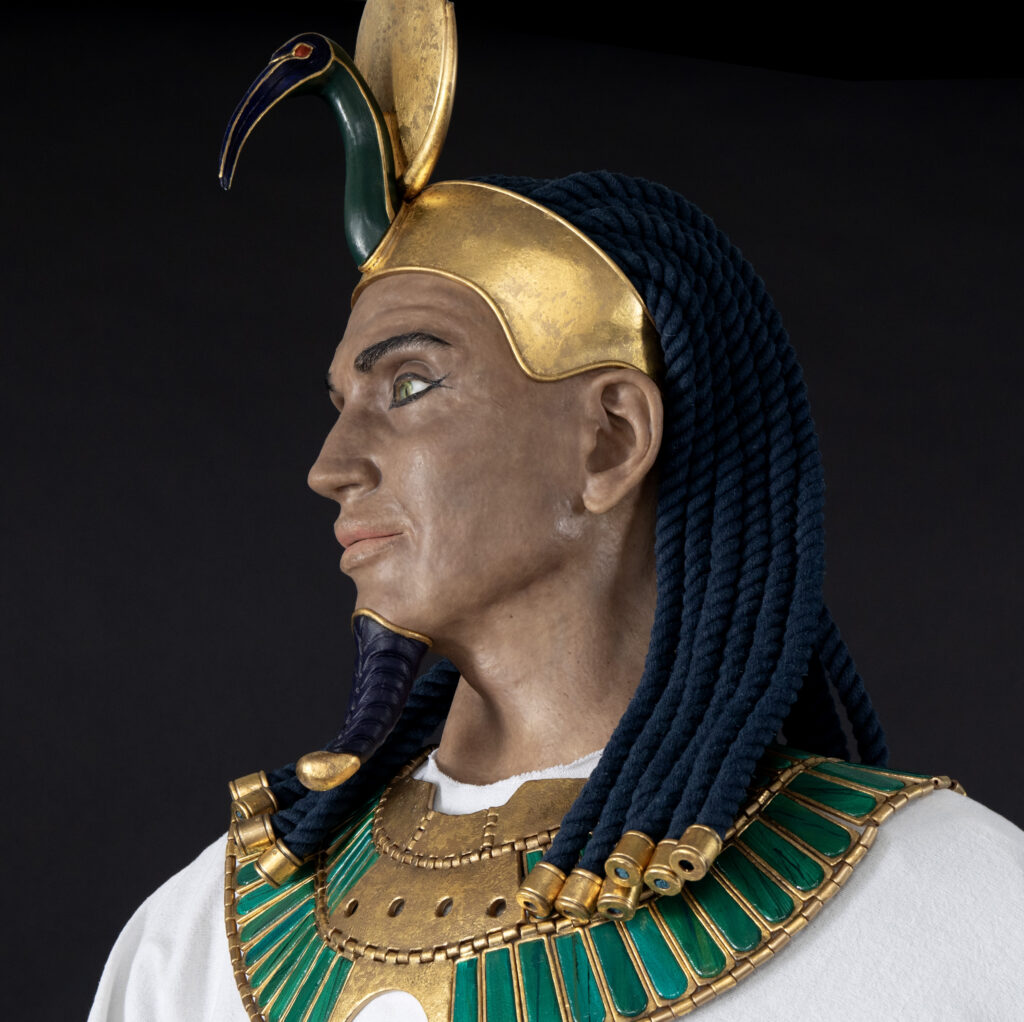Ben and I were recently in San Jose, California for a wedding. We stopped by the Rosicrucian Egyptian Museum for an afternoon visit, and were surprised to find an astonishing use of ChatGPT: A responsive, animatronic Thoth!
You step up to a microphone, and ask Thoth a question, and he lectures – in this he resembles the know-it-all ChatGPT– tying your question to a Roscruician context.
Thoth by Rosicrucian Egyptian Museum
According to the museum’s website his “knowledge base includes the secrets of bygone eras—Egyptian, Greek, and Roman wisdom, as well as the enigmatic arts of Alchemy and Rosicrucianism"; he's also fine tuned with personality traits (just what would an ancient Egyptian god speak like?).
We weren’t sure what was going on, or that animatronic Thoth could actually respond to any question, until someone asked a detailed question about Pokémon and got a reasonable (if pompous) answer.
He's multilingual! Ben addressed it in French: ”De quel pays vient l’art de l’alchemie?“ and Thoth answered (in English). With an additional prompting of “Répetez en français”, suggested by the staff, he answered in French.
Thoth’s eyes are actually cameras – I believe they are using ChatGPT’s 4o multimodal model to incorporate images into his prompts – so I tried some queries along the lines of “how many fingers am I holding up”; while Thoth attempted to find my fingers he had some challenges focusing beyond the shadows of his stage.
Could this be the future? I thought the capturing of a particular museum and belief system’s knowledge in a chatbot was an appropriate and interesting use of AI. Could you do the same thing with Abraham Lincoln in the Hall of Presidents, or the animatronic LBJ telling jokes at the Johnson Presidential Library? Would we like what we heard and saw? Would it give us a deeper understanding of their personalities, or would those technical proxies be limited and unsatisfying?
Learn more:

